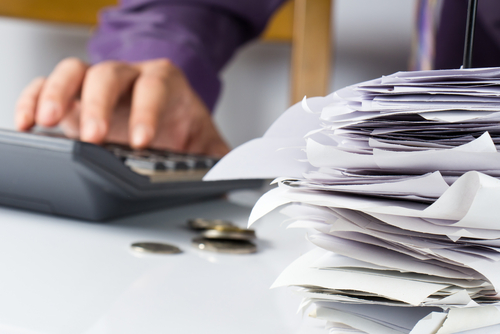For most small business owners, tax time isn’t a lot of fun. But while taxes may not be exciting, they don’t have to be drudgery, either. Doing your taxes properly is essential to prevent incurring extra penalties and fines. Here are four keys to helping your small business’s tax season go smoothly:
Review Any Recent Tax Changes
For example, part of the arrangement that was made in Congress to avoid a fiscal cliff concerned taxes, both individual and business. The 2011 payroll tax cut has ended, which means a two percent increase in your employees’ Social Security taxes. Self employed people are also affected by this change. Here’s another change you might need to know about: the start up deduction for small business owners has dropped from $10,000 to $5,000. These kinds of tax updates happen every year, and it’s important you check the IRS’s website to be aware of them.
Use the Right Forms
You, as the small business owner or self employed businessperson, can get your 1040 forms starting in January. Be sure you know which schedules you need too. Naturally, you have to send your employees their W-2s by the end of January, and don’t forget Form 1099 for independent contractors. These also must be mailed by January 31. Put reminders on your calendar to help your remember what forms need to be processed and sent by what dates.
Figure Out if You Should Have a Professional do Your Taxes
Sure, you can do your own taxes. But if you do, you need to be aware of the correct way to do them. If you do decide to prepare your business’s taxes yourself, at least make sure you consult a tax attorney to help you do them correctly and save your business as much money as possible. You should never underestimate the benefit of having professional help, especially when doing your taxes. If you don’t want to spend the money to have them done from scratch professionally, at least get everything reviewed by an expert when you finish them yourself. Thankfully, there are plenty of places to learn more about unpaid payroll taxes.
Don’t Let an Audit Catch You by Surprise
No one likes to think about being audited, but no business is exempt from the chance of it. The IRS can audit any business at any time, so even if you’re sure your taxes were done right, you should be ready. This means saving copies of past returns. The IRS recommends keeping business records for up to the past three years, but since they can actually audit returns as far back as six years ago you may as well save records for six years. This includes any checks that your business wrote along with invoices, payroll, etc. It is very easy for businesses to throw away or shred old checks and records, but this can create issues down the road. You should keep all financial info for up to six years. You will need every bit of documentation you can get in case of an IRS audit.
The bottom line is that you can minimize any headaches associated with tax season by having a plan in place for your taxes and simply following the plan. As you prepare your taxes this year, keep these 4 steps in mind for the best results.
Samantha Stainsburry is a freelance blogger from Charlottesville, VA. She’s a major history buff, and loves living in Thomas Jefferson’s hometown. She also enjoys finding new tools for entrepreneurs from executive checks to the latest software.
Image Credit: Shutterstock.com

